In the ever-evolving landscape of the hospitality industry, technological advancements play a pivotal role in shaping the guest experience and optimizing operations. Among these innovations, artificial intelligence (AI) stands out as the most transformative one.
In this article, we examine the latest statistics regarding AI adoption in the hospitality sector and its potential impact on hoteliers' operations and guest satisfaction.
Gain insights into how AI is reshaping the hospitality landscape through the eyes of hoteliers, as reflected in these key statistics.

Do you believe AI will revolutionize the hospitality industry?
A significant 55% of hoteliers believe that AI will revolutionize the hotel industry, reflecting a strong conviction in the transformative power of AI technologies.

Hilton's Connie is a standout example of AI's impact on hospitality. Developed by IBM, Connie is a Watson-enabled robot concierge that assists guests at the front desk. Standing at about two feet tall, Connie can move its arms and legs and even gesture to direct guests. Its eyes light up in different colors to convey emotions, enhancing the guest experience.
While integrating robotics into hotel operations may present challenges, AI need not be overly complex or expensive. Tools like the MARA AI review reply generator can help boost efficiencies in key operational areas that directly affect revenue generation, such as managing your online reputation. Moreover, these integrations are easy to implement and do not require a complete overhaul of your current infrastructure or operational flow.
{{blog-cta="/features/product-updates"}}
How receptive is your hotel to technological innovations?
Surprisingly, 3 out of 5 hotels claim to be very open to technological innovations. This widespread acceptance of new technologies within the industry shouldn't be surprising, as 85.9% of hoteliers report offering or planning to offer in-room technology soon. These figures underscore the growing recognition among hoteliers of the importance of staying abreast of technological advancements to enhance guest experiences and streamline operations.

Among the most common technological innovations employed by hotels today are smart room controls, mobile check-ins, data analytics, robotics, and automation, as well as Artificial Intelligence. These solutions not only cater to the evolving needs and preferences of guests but also enable hotels to optimize efficiency and deliver personalized services.
Do you plan to use AI in your hotel operations in 2024?
Looking ahead, half of all hoteliers plan to integrate AI into their operations by 2024, underscoring the growing importance of AI in shaping the future of hospitality. This statistic aligns with findings from a 2021 PwC survey, which revealed that 86% of CEOs agree that AI will become a "mainstream technology" at their company within the next five years.

How will AI change your hotel's operations in 2024 compared to previous years?
For the majority of hoteliers, AI's primary advantage lies in its ability to enhance efficiency throughout various aspects of hotel management. 51% of hoteliers emphasize increased efficiency as the main benefit of AI. Tasks such as room allocation, inventory management, and staff scheduling to reduce staff shortage can be streamlined through AI-powered automation and optimization algorithms.

Additionally, 18% anticipate improved customer service, suggesting that AI-enabled chatbots and virtual assistants will offer instant and personalized assistance to guests, enhancing their overall experience. Moreover, 10% of hoteliers foresee a decrease in the workforce, as AI solutions optimize operational tasks, thereby reducing the need for manual intervention.
Which department in your hotel benefits the most from AI?
According to 37% of hoteliers surveyed, Front Office & Guest Relations are expected to benefit the most from AI. Additionally, 36% of hoteliers believe that AI can benefit Sales and Marketing, while 18% of hoteliers believe General Management will benefit the most.

This diversity in AI utilization sets the hospitality industry apart, as 67% of businesses primarily use AI in sales and marketing. This demonstrates the adaptability of AI in catering to the diverse needs of different industries.
What are the primary reasons preventing you from adopting AI tools for your hotel?
From a management perspective, 30% of hotel managers cite the expense of AI as a significant barrier, 27% indicate a lack of perceived necessity, and 20% express concerns over the complexity of AI technologies.

As of this writing, the AI In Hospitality Market was valued at USD 90 million in 2022 and is estimated to reach a value of USD 8,120 million by 2033, with a CAGR of 60% during the forecast period. While some AI solutions remain costly, particularly for boutique hotels, condotels, and other alternative accommodations, the growing competition within the market of AI in hospitality is driving increased accessibility to more affordable AI solutions.
{{blog-cta="/features/product-updates"}}
What are the challenges your hotel encounters in implementing AI technologies?
For hoteliers, the main challenge in implementing AI is the lack of technical expertise, which accounts for 59% of responses. Additionally, 30% cite resistance from staff, and 7% mention the high cost of AI implementation as a significant obstacles.

While the number of hoteliers who are still hesitant to embrace AI is quite significant, a shift in the landscape is occurring, as recent surveys suggest that approximately 68% of employees want their employers to utilize more AI technology.
Have you ever tried an AI tool (e.g. ChatGPT)?
The utilization of AI tools like ChatGPT is gaining traction among hoteliers, with 64% having experimented with such technologies. These tools, leveraging natural language processing capabilities, offer personalized responses and assistance in customer service interactions, contributing to improved operational efficiency and guest satisfaction.

The increasing adoption of AI reflects the industry's acknowledgment of its potential to streamline operations and elevate the guest experience, signaling a shift towards innovation and technological integration within the hospitality sector.
Will AI lead to cost savings in your hotel's operations in 2024?
Half of all hoteliers believe that AI implementation will lead to significant cost savings, highlighting the financial benefits associated with AI adoption. This belief aligns closely with recent findings by McKinsey, which suggest that AI can enhance business efficiency by up to 40% and reduce operational costs by up to 30%.

How has the Covid-19 pandemic impacted the acceleration of AI adoption in your hotel?
Interestingly, 43% of hoteliers believe that the pandemic has accelerated the adoption of AI, as hotels seek innovative solutions to navigate through challenging times.

Additionally, the growth of online bookings for hotels increased by over 24% after the peak of the COVID-19 pandemic. This shows how technological innovations are truly reshaping the hotel industry.
How much time do you think you could save replying to 10 customer reviews using AI assistants like MARA?
With AI assistants like MARA, 1 out of 3 hoteliers estimates saving at least 3 minutes per review reply, highlighting the efficiency gains facilitated by AI tools.

MARA AI allows hoteliers to increase their response speed by 3x. Besides automatically generating optimized and personalized responses to reviews, MARA AI's review management platform also synchronizes reviews across major platforms automatically, streamlining the review response procedure. Additionally, the AI review reply generator offers various features such as auto-translation and smart snippets, further expediting the process.

Has the adoption of AI improved your hotel's online reviews and ratings?
Encouragingly, 3 out of 5 hoteliers report that AI adoption for review management has improved their hotels' online reviews and ratings, emphasizing the positive impact of AI on guest satisfaction.

How is this possible? For instance, MARA AI allows hoteliers to move away from templates and write personalized responses efficiently. This enables businesses to foster customer loyalty among those who leave positive reviews and mitigate the effects of negative reviews by providing context and solutions. Furthermore, MARA AI's optimized responses strategically use SEO keywords, allowing businesses to rank higher on relevant searches across various review platforms.
How would you rate your guests' acceptance of AI in your hotel operations?
Contrary to concerns, only 12% of hoteliers believe that guests aren't ready for AI in hotel operations and services, indicating a growing acceptance among guests. This shouldn't come as a surprise, as recent research shows that almost 97% of people are now using AI in some way or another. So, it's high time for hoteliers to understand that AI wouldn't impede but rather help them ensure guest satisfaction among their clientele.

How our AI stats in hospitality were collected
Our data collection process for the AI statistics in hospitality was meticulously designed to capture the most accurate and insightful information from within the hospitality industry. Leveraging the expansive professional network of LinkedIn, we conducted polls directly targeted at hoteliers, ensuring that our data reflects the sentiments and perspectives of those immersed in the day-to-day operations of hotels.
By engaging industry professionals through this platform, we were able to gather firsthand insights, opinions, and experiences regarding the integration and impact of AI technologies in hotel management. This approach not only facilitated a comprehensive understanding of current trends and attitudes but also enabled us to provide valuable and actionable insights to help you navigate the dynamic landscape of the hospitality sector.
Efficient AI-powered online reputation management with MARA
Integrating AI to your operations need not be that challenging, especially when it comes to your online reputation management. MARA AI Review Assistant is an intuitive tool is designed to ease your Online Reputation Management process, making it more efficient, personalized, and time-saving. It offers the best and most personalized AI for responding to and analyzing your guest reviews.
AI-powered Review Inbox
One of the key features of this tool is the AI-powered Review Inbox. Your review inbox makes responding to reviews as simple as hitting "Generate reply" and clicking "Send". The Review Inbox connects to multiple review sources, including Google, Booking.com, and Tripadvisor, giving you a panoramic view of all your reviews. And you can even configure review response automation: Why not allow MARA to automatically respond to simple reviews, like 5-star Google reviews with no text, ensuring you never miss a review? Daily notifications about new reviews keep you updated and in control.
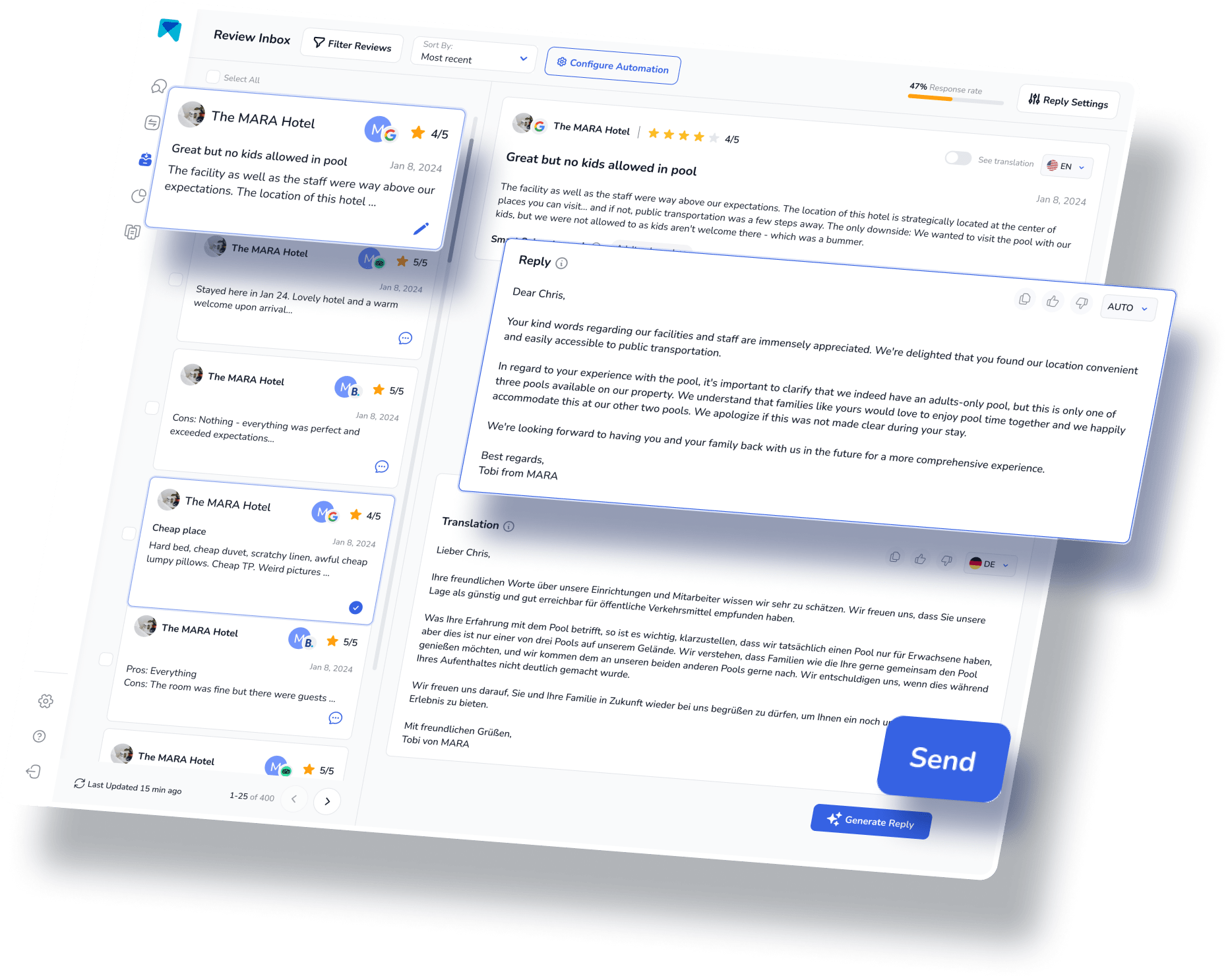
Advanced Review Analytics
To help you understand and analyze the multitude of reviews, the Review Assistant also incorporates advanced sentiment analysis through MARA Review Analytics. This provides actionable, easy-to-understand insights that are tailored exclusively to your business. With MARA, you can quickly get the gist of all your reviews without needing to read each one. The analysis is so detailed that you can find out about specific issues like "water in the pool is too cold" or "lack of vegan breakfast option”. These insights help optimize guest experience without requiring you to be a data expert.

The most personal response AI
AI integration to online reputation management isn't just about efficiency; it's about personalization too. The Brand Voice feature allows the AI to adapt to your tone, making sure your responses sound authentically you. Plus, with Smart Snippets, you can "teach" the AI how to respond to recurring praises or complaints. Your AI then incorporates this information into its responses, but always with different words, providing more personalized, relevant replies.
This review response assistant has quickly become a game-changer for over 2000 customers. Its promising capacity to elevate your overall rating, amplify response rates, glean insights from customer feedback and economize both time and money, is the reason behind its growing popularity.
Final Thought
As AI continues to permeate the hospitality industry, embracing these technologies not only enhances operational efficiency but also elevates the overall guest experience. With a forward-looking approach, hotels can leverage AI to stay competitive in an increasingly digital world. While managing online reviews can be overwhelming, with the appropriate software, not only can you streamline the process, but you can also personalize your responses, and derive valuable insights from the reviews. So, why hesitate to give our AI Review Assistant, MARA, a try? It's completely free for testing, doesn't require a credit card, and can be fully operational in less than five minutes.
This article is part of our hero content on “The Future of Hospitality Industry: Integrating AI into Hotels and Restaurants".
Frequently Asked Questions:
AI enhances guest experiences, optimizes hotel operations, improves customer service, and refines marketing strategies in the hospitality industry.
The AI market in hospitality is significant, with a value of USD 90 million in 2022, projected to reach USD 8,120 million by 2033, with a 60% CAGR.
AI in tourism and hospitality yields substantial benefits, including enhanced guest experiences, streamlined operations, improved marketing, and cost savings.
AI addresses hospitality deficiencies by automating tasks, personalizing guest interactions, optimizing resources, analyzing data for better decision-making, and boosting operational efficiency.
AI and robotics revolutionize hospitality, leading to greater efficiency, improved guest experiences, lower labor costs, enhanced safety, and innovative services like robot concierges and automated room service.



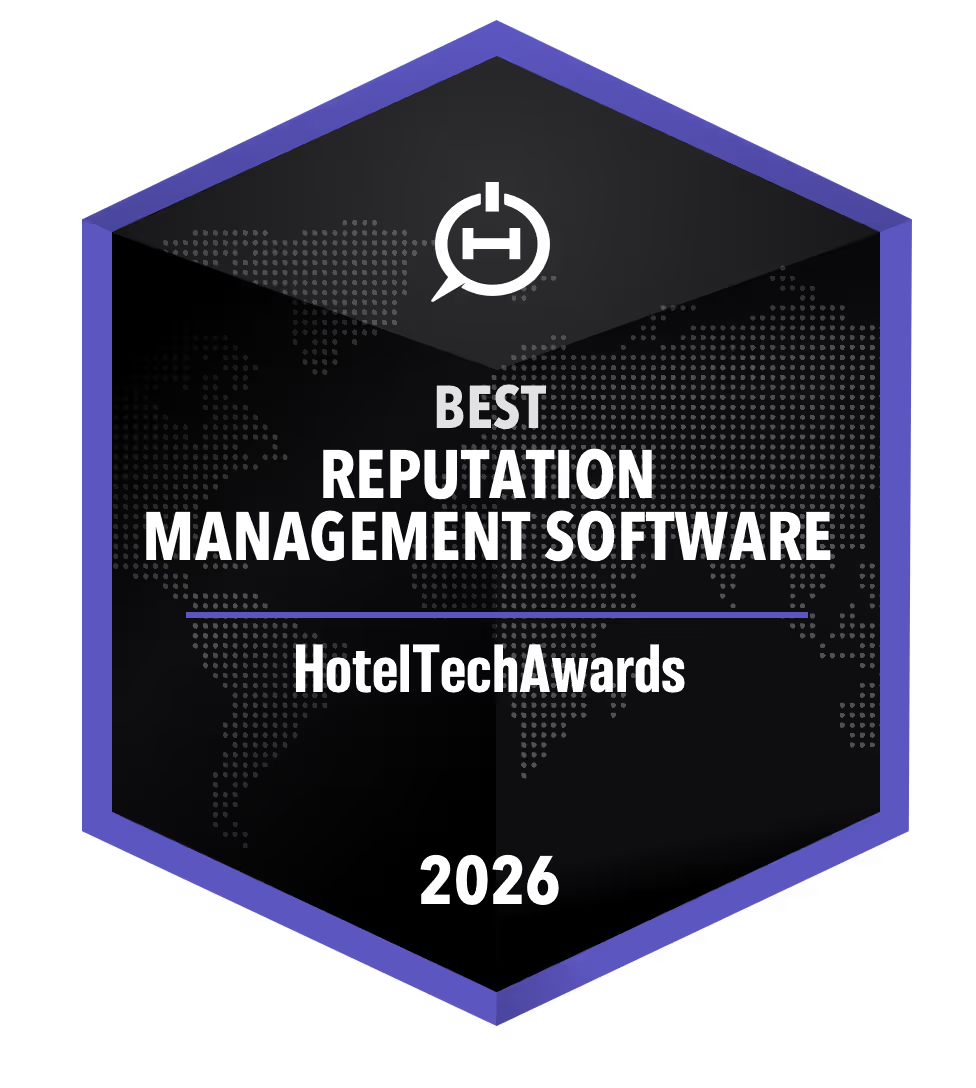


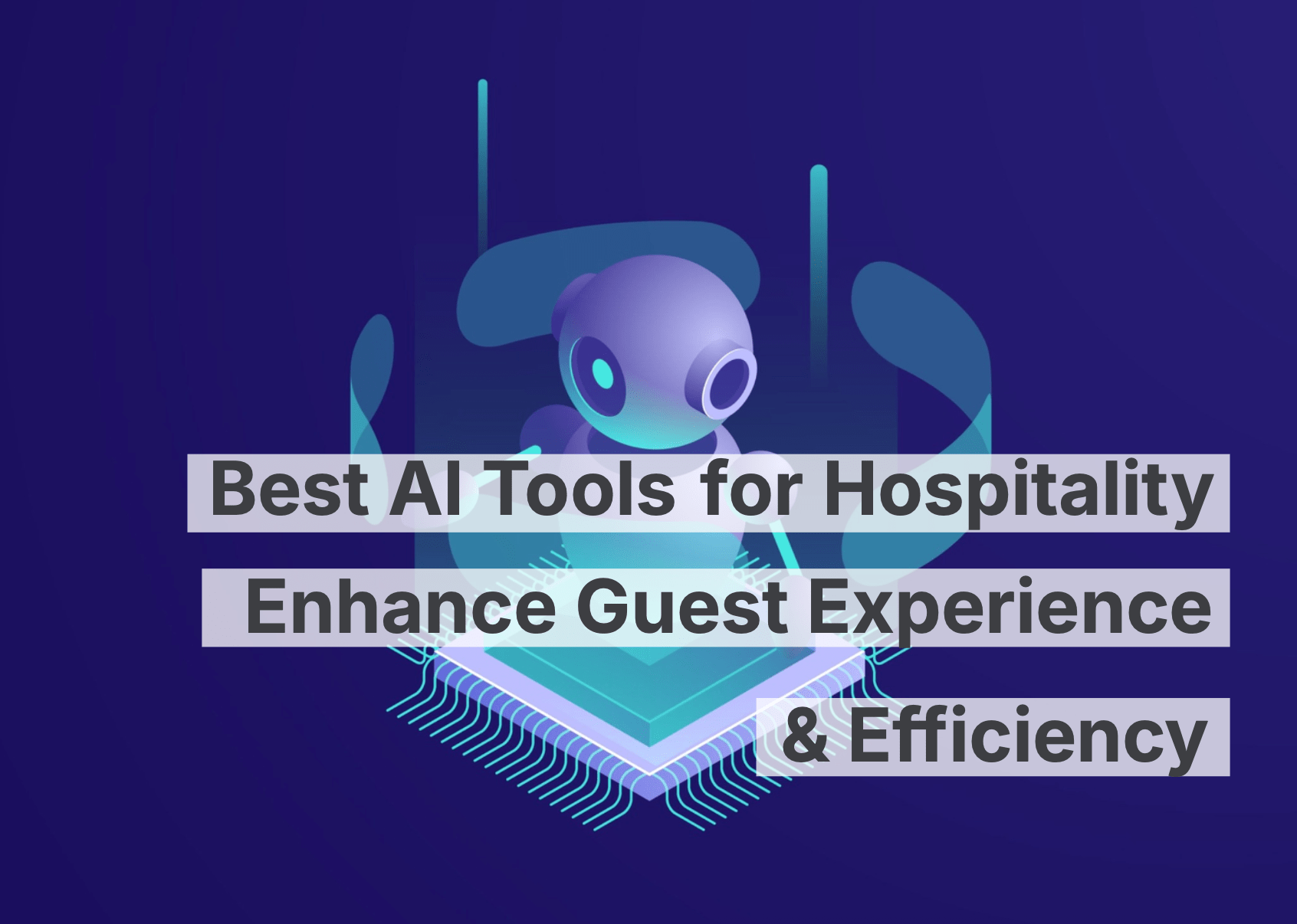

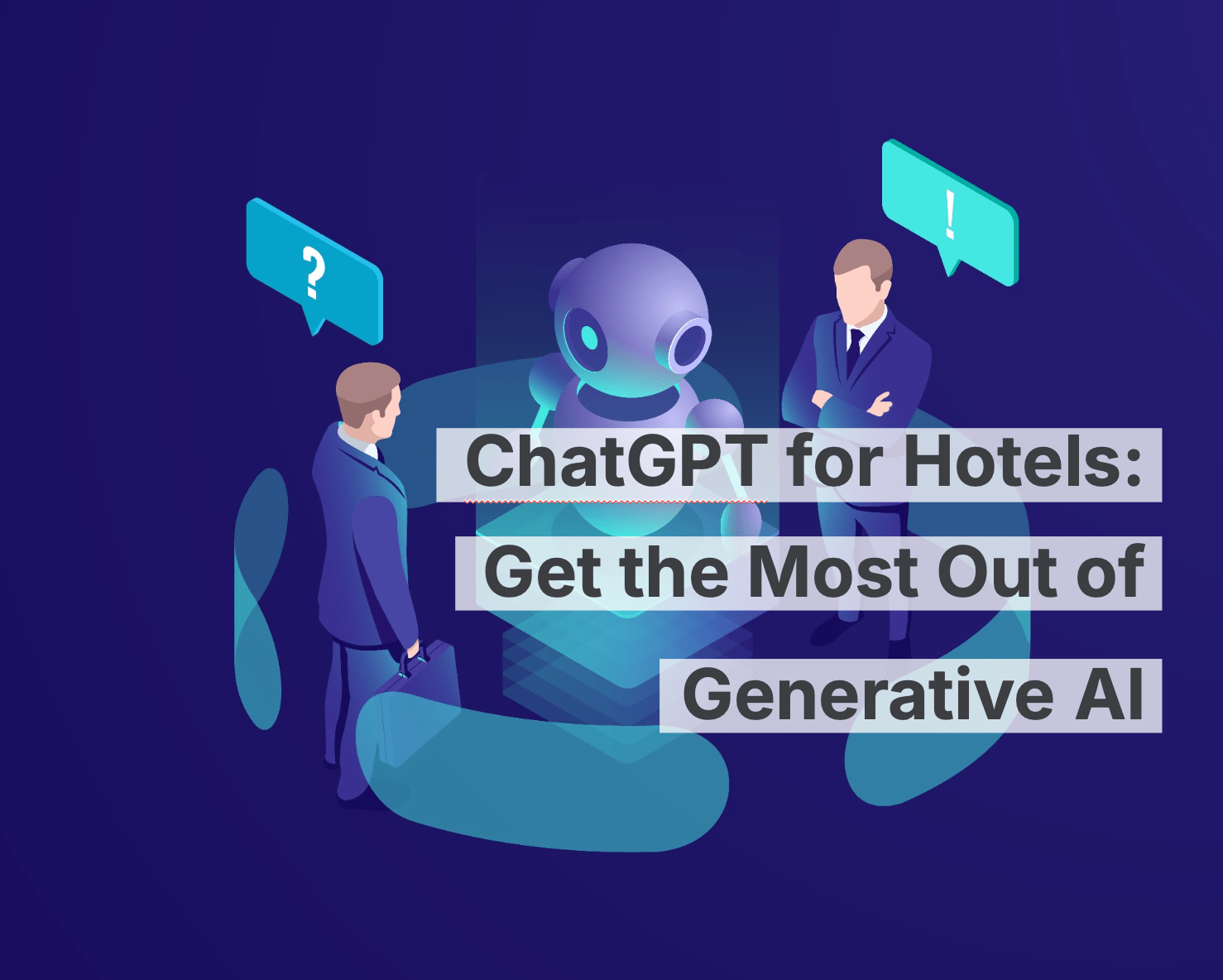

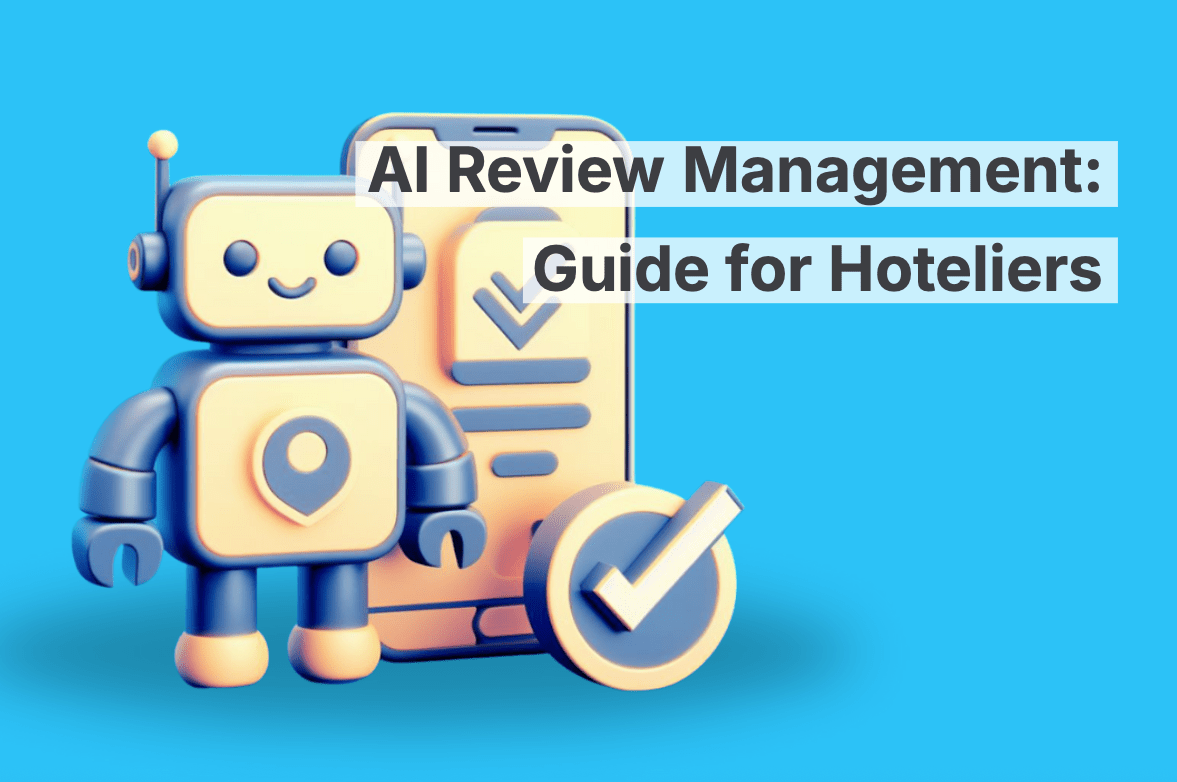







-min.avif)
